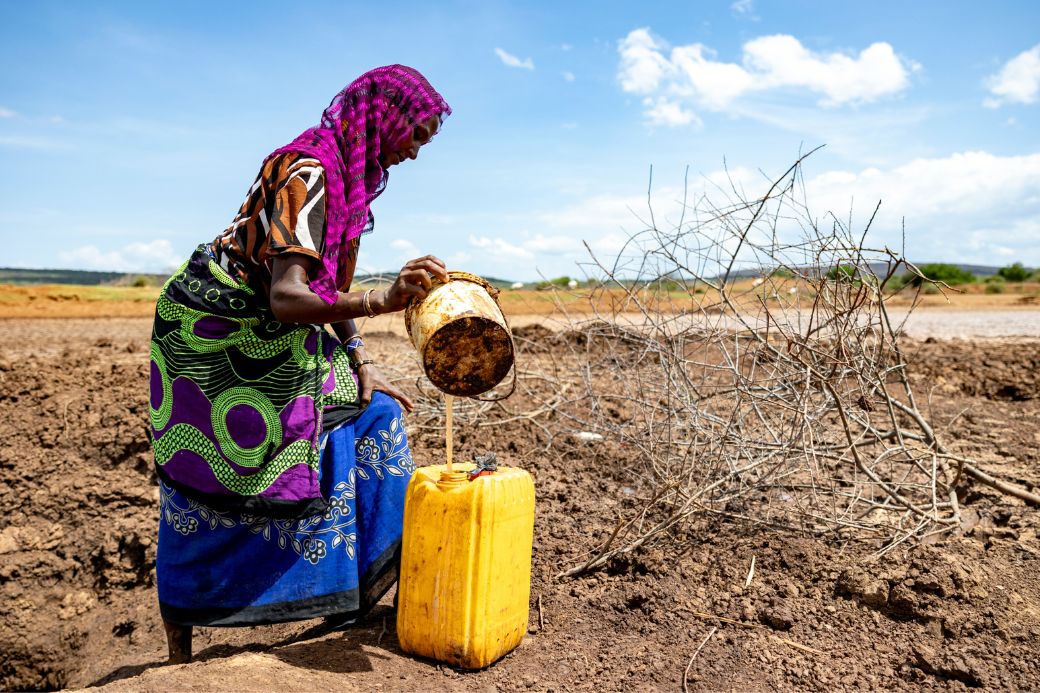Created by Valerio Nicolosi, produced by LifeGate and CESVI, the six episodes, available on major streaming platforms from 20th May, narrate the effects of five missed rainy seasons in a region where the population used to live off pastoralism and agriculture, but now has nothing left.
In Borena, since the beginning of 2021, over half a million people have left their homes in search of food and water. This marks the starting point of journalist Valerio Nicolosi‘s journey in Ethiopia, where he gathered testimonies and stories of survival in the face of drought for the six-episode podcast ‘Borena: The Land Without Rain’, produced by LifeGate in collaboration with CESVI.
The narrative leads to the discovery of the Borena region, in the Oromia Regional State, one of the areas most affected by water scarcity. CESVI has been active there since 2021 with projects aimed at combating drought and strengthening the population’s resilience to natural and internal migration shocks.
According to the Borena Zone Rapid Assessment Report of 4th December 2022, prepared by international and national NGOs along with local authorities, the area has a population of about 1.2 million people, 91% of whom reside in rural areas, with pastoralism being the most widespread means of livelihood. Since 2021, the area has experienced one of the most severe droughts ever recorded, with five consecutive rainy seasons seeing almost nonexistent precipitation levels. The lack of water has led to the gradual disappearance of animals, the main source of sustenance for the communities, which have now lost everything and suffer from malnutrition, primarily among children, but also adults, who are more exposed to diseases and epidemics.
‘The journey took me to a region where inhabitants have always lived off pastoralism and agriculture, who are now becoming internally displaced persons,’ explains Valerio Nicolosi. ‘Many of them have to walk miles every day to find a small stream flowing in the bed of a now-dry large river or dig holes in the middle of a lake that seemed inexhaustible just a few years ago. Almost everyone chooses to stay, but the dream of the younger ones is to leave for Europe.’
Between October 2021 and June 2022, over 345,000 people were displaced due to the drought, which also caused an increase in cross-border movements due to natural disasters and food insecurity.
‘We are happy to have been involved in this CESVI project that combines many of the themes we address daily, such as water, climate, and migration, in a continent like Africa that often has no voice. Creating a podcast with Valerio Nicolosi is even more valuable,’ commented Tommaso Perrone, editor-in-chief of LifeGate. ‘We see the effects of the climate crisis before our eyes, with extreme weather events now daily occurrences, and it is important to realise what is happening in seemingly distant territories to understand how to create common solutions.’
‘Climate change is a bitter reality before everyone’s eyes. We are witnessing increasingly devastating climatic disasters in every corner of the planet, and if we think that what happens in Europe and Italy is dramatic, we must look up to countries already long affected by the climate crisis, simultaneously battered by poverty, diseases, and wars, to grasp how climate change is impacting people’s lives, exacerbating inequalities, injustices, and the drama of climate refugees. In the Borena area, we have seen with our own eyes what it means to die of hunger and thirst and, at the same time, the dignity of a population on the brink, trying not to give up,’ declares Roberto Vignola, Deputy General Manager of CESVI. ‘Being able to tell all this in a podcast, CESVI’s first ever, with the voice of Valerio Nicolosi and together with LifeGate, is a source of deep pride for us. We are sure that this project will not leave listeners indifferent, as they will be catapulted into a deeply touching reality.’
‘Borena: The land Without Rain’ is produced within the framework of the HUDEPE project, in the agro-pastoralist displaced and resident communities in Borena, supported by the Italian Agency for Development Cooperation.
